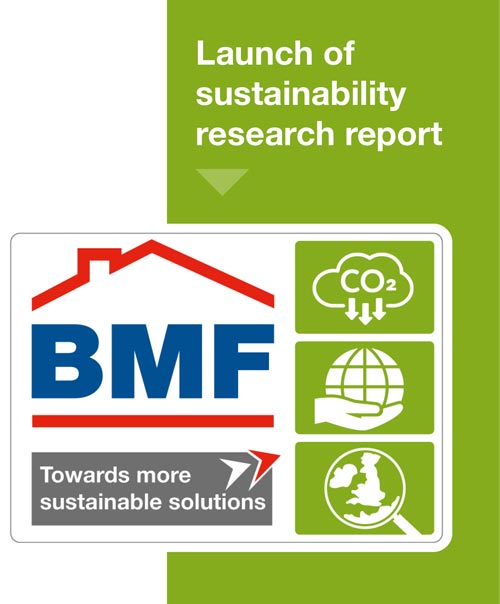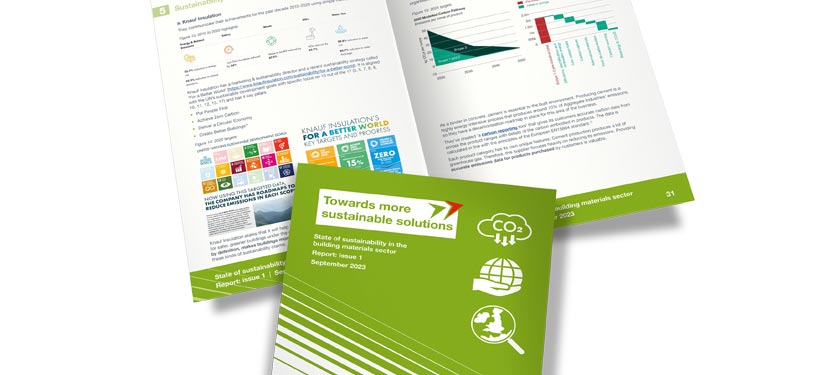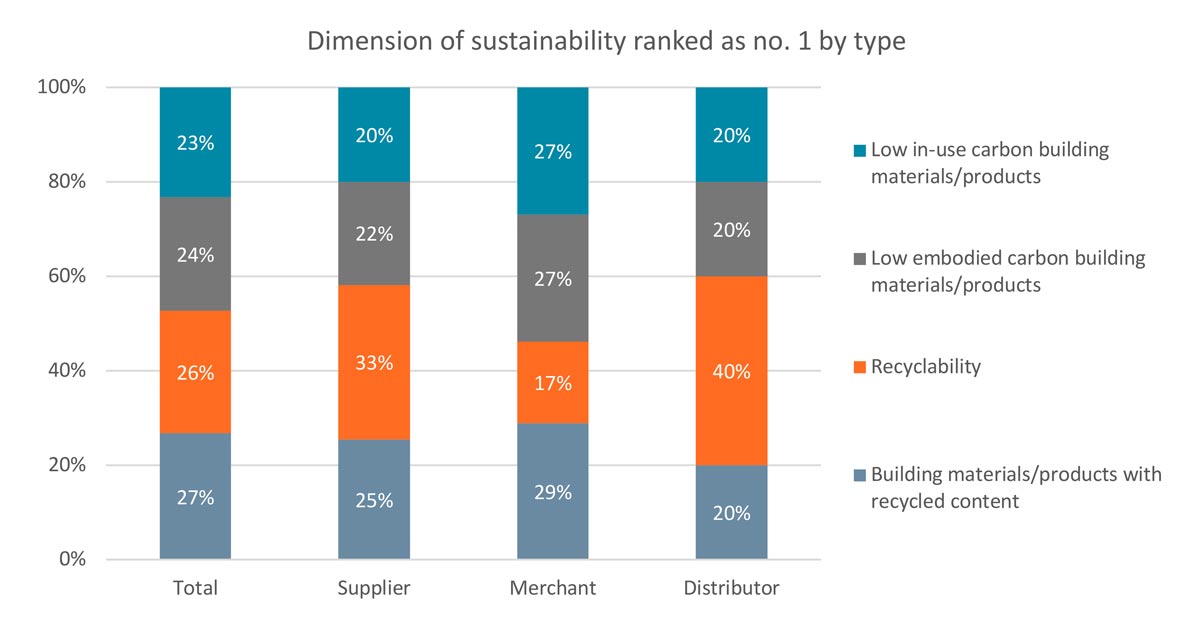Research on the state of sustainability in the Building Materials Sector highlights the importance of simplifying the subject for everyone in the supply chain

A research report conducted by leading built environment research and strategy specialists, CMDi, commissioned by the BMF, is the first of its kind to establish the current state of sustainability in the building materials sector.
John Newcomb, BMF CEO said that “a baseline was needed to measure progress towards the BMF’s goal of accelerating the transition of the industry to more sustainable building materials. We asked our strategy partners, CMDi, to conduct an extensive piece of research to establish the baseline, determine members attitudes, identify barriers that could slow the transition, as well as the levers that could accelerate adoption.”
The report was launched at the BMF’s Sustainability Forum held at the world’s greenest football club, Forest Green Rovers, in November2023. CMDi’s managing director Dianne Lucas shared the key findings of the report, which pointed to a fragmented sector starting to rise to the challenge of how to tackle this complex issue.
The main findings of the report highlight differences between merchant and suppliers. Whereas 78% of suppliers place sustainability in the top three priorities for their business, and are leveraging it as a strategic growth driver, only 45% of merchants currently afford it the same high priority. Merchants are more likely to view sustainability in terms of mitigating risk and complying with regulation, with 5% of merchants still to put sustainability on their radar.
Suppliers and distributors are driving the agenda as the slow, but progressive tightening of legislation around sustainability provides them with the commercial window of opportunity to build competitive advantage, before legislation requires the same standards from all suppliers.
Amongst merchants, however, a higher proportion are adopting a “wait and see” approach. The biggest barrier for merchants is their belief that price-sensitive customers are unwilling to pay more for sustainable products.
On average BMF members believe their customers would not pay more than a 5% premium, though this varies by product category. Merchants also cite low customer awareness of the need for sustainable materials and a lack of clarity as to what makes a product more sustainable.
When it comes to sustainability, it seems that size matters, with the importance of sustainability increasing as turnover rises. Around 50% of those with a turnover of under £100m place sustainability within their top 3 priorities. This rises to 75% for companies with a turnover of £100m-£250m and 90% for those over £250m.
When it came to prioritising the number one dimension of sustainability, there was no clear winner overall. All dimensions are important, with a slight bias towards recyclability.
Establishing the key metrics for determining sustainability is a real challenge and one that is key to help the sector avoid the damage caused by greenwashing. EPD’s could lead the way here with The Construction Leadership Council (CLC) setting a target of 40% of product revenue to have EPDs by 2025 with 100% by 2030. However the research concluded that EPDs, whilst highly valued, still have a long way to go, estimating sales of £2.16 billion out of a market of £63 billion (only 3.4%) coming from products with EPDs.
 |
The research revealed just how complex the whole issue of sustainability is in the sector. BMF members are looking to the BMF both to help promote greater awareness and understanding of the need for merchants and their customer groups to adopt more sustainable materials, and for shared industry approaches to sustainability. The work we are doing with the BMF’s sustainability working group, chaired by Giles Bradford and comprising some of the leading sustainability experts in the sector, is now moving into a new phase where we can tackle the issues head on, using the research to guide us.Dianne Lucas, Managing Director, CMDi |
 |
The BMF Sustainability Forum and the BMF Sustainability Working Group are two practical ways in which we are supporting members, wherever they are on their journey. The BMF’s supply chain collaboration will become increasingly essential for creating industry wide standards, best practice, information, training, forums and marketing materials.John Newcomb, CEO, BMF |


